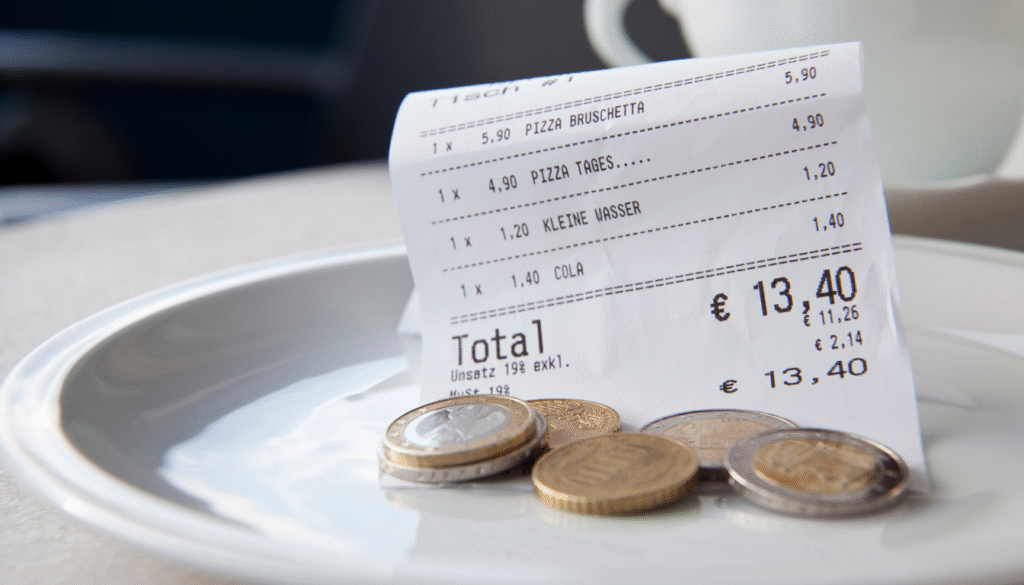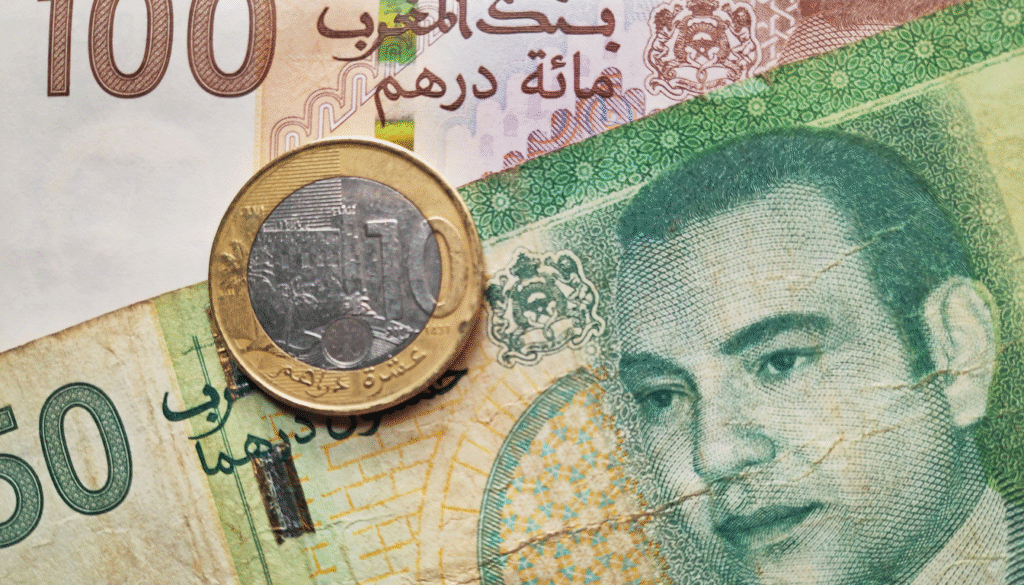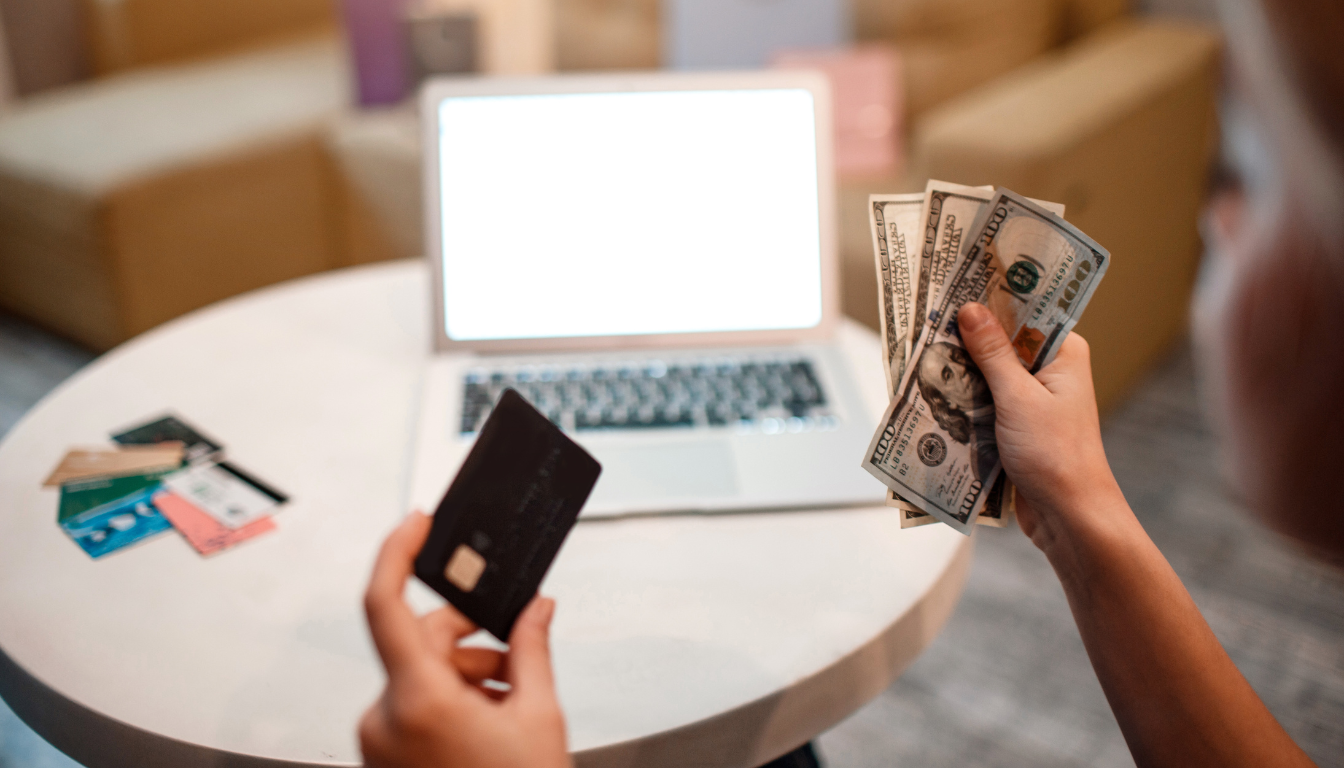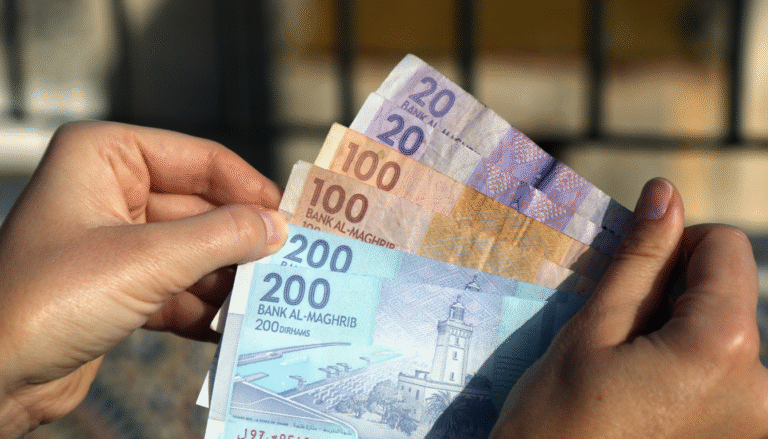Cash or Card in Morocco: What You Need to Know
Are you curious about how to handle money in Morocco? The local currency is the Moroccan dirham. Knowing your payment options is key for a hassle-free trip.
In Morocco’s lively souks and cities, you’ll find both old and new ways to pay. While some places take credit and debit cards, cash is often preferred, mainly outside big cities.
This article will help you manage your money for your trip. You’ll learn about tipping, using ATMs, and shopping at souks. By the end, you’ll be ready to handle money with ease, enjoying your time in Morocco.
Understanding Moroccan Currency: The Dirham
Traveling to Morocco means knowing the local currency. The dirham is Morocco’s official money. Learning about the dirham will make shopping and eating out easier.
Denominations and Exchange Rates
The Moroccan dirham comes in many sizes, making spending easier. You’ll find coins in ½, 1, 2, 5, and 10 dirhams. Banknotes are in 20, 50, 100, and 200 dirhams.
Bills and Coins You’ll Encounter
The dirham’s coins and banknotes are easy to tell apart. Coins are for small buys, and banknotes for bigger ones. Knowing the different sizes helps with quick payments.
Current Exchange Rates with USD
The value of the dirham against the US dollar changes. Right now, 1 USD is about 10 dirhams. But, this rate can change. Always check the latest rate before you go.
Knowing the Moroccan dirham is key to managing your money. While dirhams aren’t used much outside Morocco, having some makes your trip easier. You can exchange money when you arrive or get dirhams from ATMs in big cities.
The Payment Landscape in Morocco
Morocco’s payment scene changes a lot from city to village. Knowing the local payment options makes everyday transactions smoother.
Urban vs. Rural Payment Differences
Payment methods in Morocco change a lot based on location. Cities have modern ways to pay, but rural areas stick to old methods.
What to Expect in Marrakech, Casablanca, and Fez
In big cities like Marrakech, Casablanca, and Fez, card use is common. Restaurants, shops, and hotels accept cards, making life easier for tourists.
Payment Options in Smaller Towns and Villages
Smaller towns and villages rely more on cash. You’ll need dirhams for most transactions. Even in big places, some vendors might only take cash.
Knowing these differences helps you manage your money better. It’s key whether you’re in Marrakech’s busy streets or a quiet village.
Cash or Card in Morocco: What’s Best for Travelers?
Before your Moroccan trip, it’s key to know when to use cash and when cards. Morocco’s economy and culture vary, so both cash and cards have their uses. It depends on where you are and what you’re doing.
When Cash is Essential
In Morocco, cash is often the preferred payment, mainly in traditional settings. For example, at local markets or souks, you’ll need cash for shopping. Street food vendors and small shops also prefer cash.
Markets, Street Food, and Small Shops
At traditional markets and when trying street food, having dirhams is a must. Many vendors won’t take cards, so cash is best. Here are some tips:
- Always have some local currency for small purchases.
- Be prepared to haggle when shopping at markets.
- Street food is a great way to experience local cuisine, and cash is usually the preferred payment method.
Transportation and Local Services
For local transportation like buses or petit taxis, cash is the only accepted payment. Some local services, like haircuts or small repairs, also need cash.
Where Cards Are Widely Accepted
While cash is key in many places, cards are accepted in others. Larger places, tourist spots, and modern restaurants usually take cards.
Hotels, Restaurants, and Tourist Attractions
Major hotels and tourist restaurants often accept Visa and Mastercard. Many tourist attractions also accept card payments, making travel easier.
Visa vs. Mastercard vs. American Express Acceptance
Visa and Mastercard are widely accepted in Morocco. But American Express is less common. It’s smart to have a backup card, just in case.
Knowing when to use cash versus cards helps you navigate Morocco’s payment scene easily. This way, your trip will be stress-free and enjoyable.
Finding and Using ATMs in Morocco
Getting cash in Morocco is easy thanks to many ATMs. You can find them in cities and tourist spots. They help you get the local currency, the dirham.
ATM Locations in Major Cities
In cities like Marrakech, Casablanca, and Rabat, ATMs are everywhere. Bank-affiliated ATMs are safer and have lower fees.
Bank-Affiliated vs. Independent ATMs
Stick to bank-affiliated ATMs to save money and avoid scams. Independent ATMs in tourist spots might charge more or be less safe.
ATM Availability in Tourist Areas
Medinas and landmarks have ATMs close by. But, it’s wise to carry some local cash, too, for less visited places.
Bank-Specific Tips and Fees
Know the fees your ATM card might have. Some banks charge extra for foreign use, but others might not.
Moroccan Bank Withdrawal Limits
Some Moroccan banks limit how much you can withdraw. This limit can change based on the bank and your account.
Minimizing ATM Fees
To cut down on fees, use a bank that doesn’t charge for foreign use. Also, taking out more money at once can save you money in the long run.
Knowing where to find ATMs, how to avoid fees, and the withdrawal limits helps you enjoy Morocco without financial worries.
Credit and Debit Card Usage Tips
Before you head to Morocco, it’s key to know how to use your cards wisely. Many places, like tourist spots, take major cards. But, cash is often preferred or needed in some places.
Notifying Your Bank Before Travel
Tell your bank you’re traveling to avoid card issues. This simple step can prevent your card from being blocked.
Setting Travel Notices on US Cards
Major US banks let you set travel alerts through apps or online. For instance, Bank of America’s app is great for this.
Backup Payment Methods
Carry a backup card, like a second credit card or a different debit card. This way, you won’t be stuck if your main card is lost or blocked.
Foreign Transaction Fees to Watch For
Some cards charge extra fees for foreign use. Knowing about these fees helps you choose when to use your card.
US Cards with No Foreign Transaction Fees
Cards like the Chase Sapphire Preferred and Capital One Venture don’t charge these fees. They can save you money on international purchases.
Dynamic Currency Conversion Traps
Watch out for dynamic currency conversion (DCC) when abroad. It lets merchants charge you in your home currency, often at bad rates. Always choose to pay in local currency (dirhams) to avoid this.
| Card Type | Foreign Transaction Fees | Recommended For |
|---|---|---|
| Chase Sapphire Preferred | No | International Travel |
| Capital One Venture | No | International Travel |
| Standard Debit Card | Yes | Local Purchases |
Tipping Etiquette in Morocco
Tipping in Morocco is more than just saying thank you. It’s a big part of the culture. When you visit the souks, eat at a riad, or go on a tour, knowing how to tip makes your trip better.
Restaurants and Cafés
In Morocco, tipping at restaurants and cafes is expected if the service is good. It’s common to leave a certain percentage of the bill as a tip.
Standard Tipping Percentages
A tip of 5-10% of the total bill is usual. But, it can change based on the service and the place.
When Service Charge is Included
Some places might already have a service charge on your bill. Always check to avoid tipping twice. If there’s a charge, a small extra tip is nice but not needed.

Hotels and Tour Guides
Tipping isn’t just for restaurants. It’s also for hotels and tour guides. Showing gratitude is a big part of Moroccan culture.
Bellhops, Housekeeping, and Concierge
For bellhops, a tip of 10-20 dirhams per bag is common. Housekeeping staff like 10-20 dirhams per day. Concierge tips depend on the service’s quality and complexity.
Day Tours vs. Multi-Day Guides
For day tours, a tip of 50-100 dirhams per person is good. For guides on longer trips, the tip can be 100-200 dirhams per day, based on the service and guide’s knowledge.
| Service | Standard Tip |
|---|---|
| Restaurants/Cafes | 5-10% of total bill |
| Bellhops | 10-20 dirhams per bag |
| Housekeeping | 10-20 dirhams per day |
| Day Tours | 50-100 dirhams per person |
| Multi-Day Guides | 100-200 dirhams per day |
By knowing and following these tipping customs, you’ll have a great time in Morocco.
Mastering Souk Shopping and Haggling
Shopping in Morocco’s souks is an adventure. It needs preparation, cultural understanding, and haggling skills. Being ready with cash and knowing local customs can make your experience better.
Preparing Cash for Bargaining
Having the right cash is key in Morocco’s souks. Unlike some places, Morocco’s markets prefer cash over digital payments.
Small Denominations and Exact Change
It’s smart to have small Moroccan dirhams. Vendors often struggle with large bills. This helps you get a fair price when haggling.
Having exact change can also speed up price agreements.
Organizing Your Money Before Shopping
Organize your money before going to the souks. Use separate compartments for different denominations. This makes finding the right amount easy and helps you stay within your budget.
In Morocco, having cash organized can greatly improve your shopping experience.
Haggling Etiquette and Strategies
Haggling in Morocco’s souks is an art. Knowing the etiquette makes it more enjoyable. It’s not just about the price; it’s about building a good relationship with the vendor.
Starting Prices and Counteroffer Tactics
Start with a lower offer than you’re willing to pay. For example, if an item costs 100 dirhams, offer 60 dirhams. The vendor will counteroffer, and you can negotiate until you agree on a price.
Friendly Negotiation Phrases in Arabic
Using Arabic phrases can make haggling more positive. Saying “As-salamu alaykum” (peace be upon you) sets a friendly tone. Knowing that “e-commerce in morocco” is growing, vendors might be more open to negotiations if you’re friendly.
Being prepared with cash, knowing haggling etiquette, and using Arabic phrases can help you master souk shopping in Morocco. This approach not only gets you good deals but also makes your experience more enjoyable.
Money Safety and Scam Prevention
As you get ready for your Moroccan trip, it’s key to know how to keep your money safe. Morocco, like many tourist spots, has scams and theft. Knowing how to protect yourself is your best defense.
Keeping Your Cash Secure
Use a money belt or an anti-theft bag to protect your money. These items are hard for thieves to get into. Also, spread your cash around, like in your hotel safe and wallet. This way, you won’t lose everything if you get robbed.
Money Belts and Anti-Theft Bags
Getting a quality money belt or anti-theft bag can really help. Look for ones with strong straps and RFID-blocking material. This keeps your cash and personal info safe from thieves.
Dividing Cash Between Locations
Don’t put all your cash in one spot. Keep some in your wallet, some in your hotel safe, and more in other safe places. This way, if you get robbed, you won’t lose everything.
Avoiding Common Money Scams
Knowing about common scams can help you avoid losing money. Watch out for scams at currency exchanges, which might offer bad rates or extra fees.
Currency Exchange Scams
Always check the current exchange rate before you exchange money. Be careful of deals that seem too good to be true. Stick to reputable places like banks or official exchange offices.
Distraction Techniques Used by Pickpockets
Pickpockets often distract you to steal. They might bump into you or make a scene. Stay alert in crowded places and keep your valuables close.

Conclusion: Smart Money Management for Your Moroccan Adventure
Managing your money well is key to a stress-free trip to Morocco. Knowing the local currency and payment options helps you enjoy your adventure. Whether using cash or card, being prepared is essential.
In major cities, cards are widely accepted. But in souks and rural areas, cash is king. It’s important to know this.
When traveling to Morocco, understanding your payment options is vital. You can withdraw dirhams at ATMs and many places accept major credit cards. But, it’s wise to have some local currency for shopping and tipping.
Mastering the local payment landscape and keeping your money safe lets you fully enjoy Morocco. With smart money management, you can explore this vibrant country without worry.


